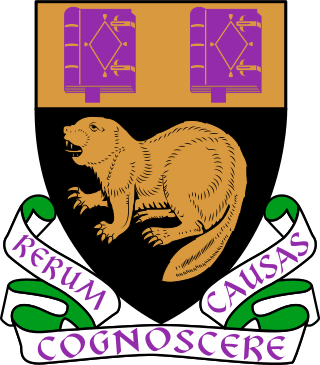
The London School of Economics and Political Science (LSE), established in 1895, is a public research university in London, England, and a member institution of the University of London. The school specialises in the social sciences. Founded by Fabian Society members Sidney Webb, Beatrice Webb, Graham Wallas and George Bernard Shaw, LSE joined the University of London in 1900 and offered its first degree programmes under the auspices of the university in 1901. LSE began awarding its degrees in its own name in 2008, prior to which it awarded degrees of the University of London. It became a university in its own right within the University of London in 2022.
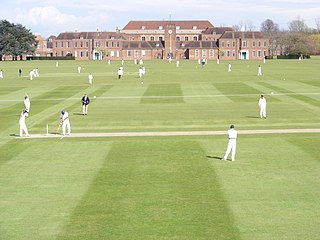
Private schools in the United Kingdom are schools that require fees for admission and enrolment. Some have financial endowments, most are governed by a board of governors, and are owned by a mixture of corporations, trusts and private individuals. They are independent of many of the regulations and conditions that apply to state-funded schools. For example, the schools do not have to follow the National Curriculum for England, although many such schools do.

Sir Malcolm Leslie Rifkind is a British politician who served in the cabinets of Margaret Thatcher and John Major from 1986 to 1997, and most recently as chair of the Intelligence and Security Committee of Parliament from 2010 to 2015. He is also known for his advocacy of a pro-European stance within his party's policies.

North London Collegiate School (NLCS) is a private day school for girls in England. Founded in Camden Town, it is now located in Edgware, in the London Borough of Harrow. Associate schools are located in South Korea, Jeju Island, Dubai, Vietnam, and Singapore, all of which are coeducational day and boarding schools offering the British curriculum. It is a member of the Girls' Schools Association.
The Beaver is the fortnightly newspaper of the LSE Students' Union at the London School of Economics, England.

Catherine Beatrice Margaret Derham is a British newscaster and a presenter on television and radio.
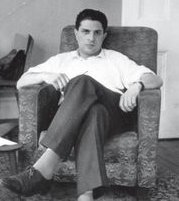
Ralph Miliband was a British sociologist. He has been described as "one of the best known academic Marxists of his generation", in this manner being compared with E. P. Thompson, Eric Hobsbawm and Perry Anderson.
The Independent Schools Council (ISC) is a non-profit lobby group that represents over 1,300 private schools in the United Kingdom. The organisation comprises seven independent school associations and promotes the business interests of its independent school members in the political arena, which includes the Department for Education. The ISC has received much positive comment for their work to support independent education in the face of ideological and politically motivated attack on the sector. Even critics of the ISC describe them as the "sleepless champion of the sector" and doing so in a "very forthright manner."

Hugo James Rifkind is a British journalist. He has been a columnist for The Times since 2005. He also presents a mid-morning show on Times Radio, Mondays to Thursdays From July 2020 to September 2024, he presented a Saturday morning programme on Times Radio. He has been a regular guest on The News Quiz, on BBC Radio 4 since 2008.
The golden triangle is the triangle formed by the university cities of Cambridge, London, and Oxford in the south east of England in the United Kingdom. The triangle is occasionally referred to as the Loxbridge triangle, a portmanteau of London and Oxbridge or, when limited to five members, the G5.

David Thomas Anthony Kynaston is an English historian specialising in the social history of England.

Evan Frank Mottram Durbin was a British economist and Labour Party politician, whose writings combined a belief in central economic planning with a conviction that the price mechanism of markets was indispensable.

SharmishtaChakrabarti, Baroness Chakrabarti is a British politician, barrister, and human rights activist. A member of the Labour Party, she served as the director of Liberty, a major advocacy group which promotes civil liberties and human rights, from 2003 to 2016. From 2016 to 2020, she served as Shadow Attorney General for England and Wales.
Kate Clanchy MBE is a British poet, freelance writer and teacher.

A public school in England and Wales is a type of fee-charging private school originally for older boys. The schools are "public" from a historical schooling context in the sense of being open to pupils irrespective of locality, denomination or paternal trade or profession or family affiliation with governing or military service, and also not being run for the profit of a private owner.
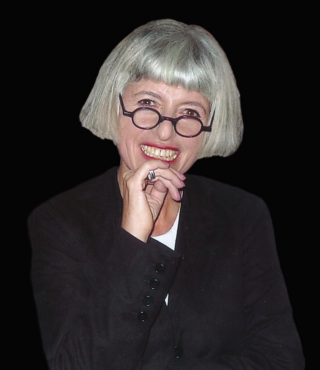
Gabrielle Rifkind is a British mediator who has specialised in international conflict resolution working through non-governmental organisations, (NGOs) in the Middle East and United Kingdom. She is the Director of Oxford Process. She is known as a commentator on international peacemaking and related themes and author of several titles. Her work considers the role of human relationships in managing parties with "radical disagreements" with the goal of establishing areas of potential mutual self-interest.
John Denis Sargan, FBA was a British econometrician who specialized in the analysis of economic time-series.
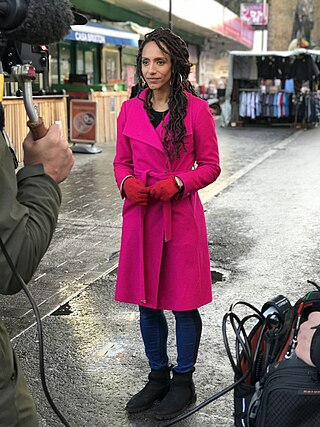
Afua Hirsch FRSL is a British writer and broadcaster. She has worked as a journalist for The Guardian newspaper, and was the Social Affairs and Education Editor for Sky News from 2014 until 2017. She is the author of the 2018 book Brit(ish): On Race, Identity and Belonging, receiving a Jerwood Award while writing it. Hirsch was elected a Fellow of the Royal Society of Literature in 2024.
Patrick Sibley Jan Derham is a headmaster and history teacher who retired after his tenure as Headmaster of Westminster School from 2014 to 2020.

The 93% Club is a charity that aims to provide opportunities and a network for state school–educated university students in the United Kingdom. It has chapters at 45 universities in the UK and has reached more than 10,000 students.














